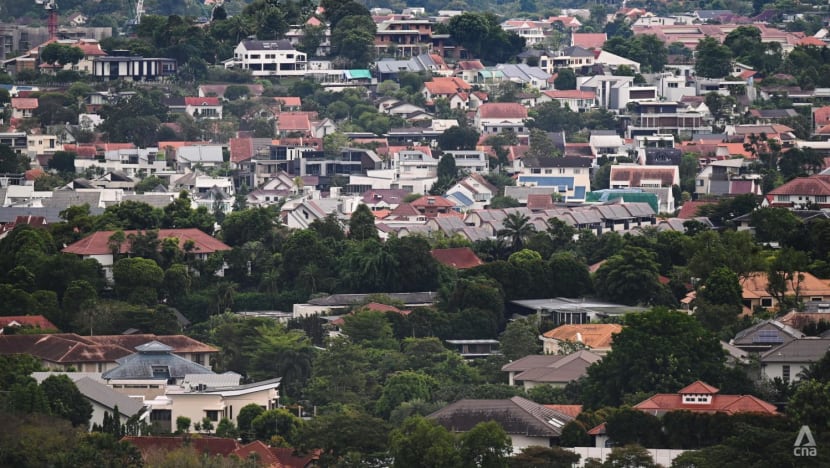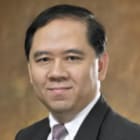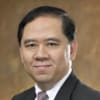Commentary: Taxing the wealthy makes sense when there is little room for higher income tax or GST
Moves to increase taxes on high-end properties and luxury cars in Budget 2023 come hot on the heels of similar moves just last year, but that isn’t surprising, says NUS professor Simon Poh.

Landed properties in Singapore. (File photo: CNA/Gaya Chandramohan)
SINGAPORE: In his Budget 2023 speech on Tuesday (Feb 14), Deputy Prime Minister and Finance Minister Lawrence Wong continued his approach to wealth taxes, increasing buyer’s stamp duty (BSD) for higher-value properties and further taxing luxury cars.
The decision came as an initial surprise since similar moves were made just last year when Mr Wong rolled out higher income tax, property tax and vehicle tax at the top tiers.
WHY SO SOON?
These latest changes clearly enhance the progressivity of the BSD and vehicle tax regimes, echoing last year’s moves of getting those who have more to contribute more, which would include recent waves of ultra-wealthy individuals and families relocating to Singapore.
For residential properties, the new higher rates of 5 per cent and 6 per cent apply to the portion of the value in excess of S$1.5 million and up to S$3 million and in excess of S$3 million respectively, up from the current 4 per cent introduced in February 2018. Earlier cooling measures like higher additional buyer’s stamp duty (ABSD), last increased in December 2021, have not seemed to have deterred wealthy property buyers.
For non-residential properties, the current rate of 3 per cent will be increased to 4 per cent for the portion of the value in excess of S$1 million and up to S$1.5 million and 5 per cent for that in excess of S$1.5 million.
The Additional Registration Fee (ARF) rates were also revised, with the highest tier of luxury vehicles seeing an increase to 320 per cent, up from the current 220 per cent, newly introduced last year. Perhaps the intention here is also to tame the Certificate of Entitlement (COE) premiums, consistently high at about S$100,000 for Category E in recent bidding exercises, which also suggests the earlier round of vehicle taxes has not curbed appetite.
According to Mr Wong, 15 per cent of residential properties, 60 per cent of non-residential properties and the top one-third of cars by open market value are expected to be affected.
ADDITIONAL TAX REVENUES
These indirect wealth taxes also provide a sustainable source of additional tax revenue for the Government to cope with increased expenditure, with an additional S$700 million in revenue expected each year.
To ensure our tax system continues to be resilient and sustainable in the future, while maintaining fairness and progressivity, it is inevitable that Singapore has to continue relying on a good mix of taxes on income, assets and consumption.
There is less scope to work on income tax given its effect on our overall competitiveness. Budget 2022 already introduced two new marginal personal income rates of 23 per cent and 24 per cent, which had just kicked in this year.
There is uncertainty on how our overall corporate tax revenue may be impacted when Pillar 2 of the Base Erosion and Profit Shifting (BEPS 2.0) initiative, aimed at fighting tax avoidance, is eventually implemented from 2025.
There is even lesser room to work on the Goods and Services Tax (GST) given that the second phased increase from 8 per cent to 9 per cent has yet to take place.
EFFICIENT WAY OF TAXING WEALTH
Hence, it is actually not surprising that the Government has chosen to go for asset taxes again. It is by far a more efficient way of taxing wealth than a “pure wealth tax” based on net wealth.
Mr Wong said last year that the Government will continue to explore options to tax wealth effectively.
Budget 2023 was silent on whether the reintroduction of estate duty or inheritance tax was still being explored.
Perhaps he is keeping it in his back pocket should additional revenues be needed in the future.
Simon Poh is Associate Professor (Practice) of the Department of Accounting at NUS Business School. The opinions expressed are those of the writer and do not represent the views and opinions of NUS.



















